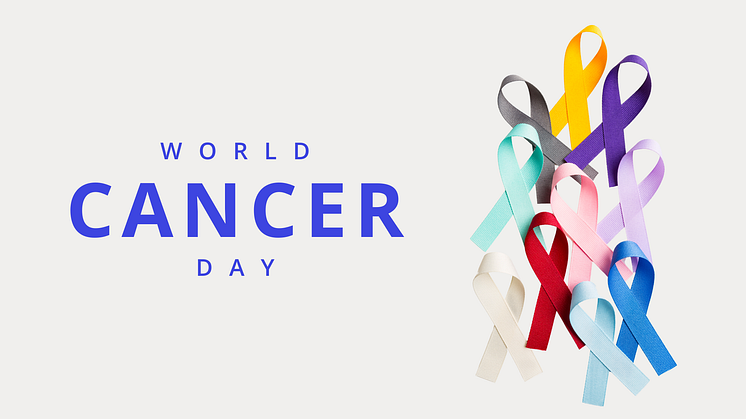
Press release -
Discovery Health Medical Scheme data shows over R3.2 billion paid for cancer treatment in 2023
Regular cancer screening is lifesaving - the earlier you catch cancer, the better your outcomes
With World Cancer Day commemorated every year on 4 February, latest claims data from Discovery Health Medical Scheme (DHMS) shows an improvement in cancer screening rates following the dip noted during the pandemic period from 2020 to 2022. For the most part they have returned to pre-pandemic levels.
“It isn’t only in South Africa that cancer screenings were missed during the COVID-19 pandemic. A Lancet Oncology Commission report titled 'European Groundshot – Addressing Europe’s Cancer Research Challenges' estimated that due to 100 million screenings that were missed in Europe during the COVID-19 pandemic, one million European citizens may have undiagnosed cancer,” says Dr Noluthando Nematswerani, Chief Clinical Officer at Discovery Health.
Shirley Collie, Chief Research Actuary for Discovery Health, explains trends seen in the DHMS claims data regarding the top four prevalent cancers:
- Breast cancer: “Breast cancer is the most common cancer among DHMS members. From 2019 to 2020 – the first year of COVID-19, breast cancer screening rates decreased by 19.3%. There was a slight increase in screening rates from 2020 to 2021. By 2023, screening rates exceeded 2019 rates by 8.1%, with 367.7 screens completed per 1,000 eligible person years.
-
Prostate cancer: “Prostate cancer is the second most common cancer for DHMS members in general and the most common cancer among male members. As with breast cancer, prostate screening rates also fell during the first year of the pandemic, dropping by 10.7% between 2019 and 2020. There was some recovery in screening rates in 2021 before rates increased to 637.6 screens per 1 000 eligible person years in 2023 – 10.4% higher than pre-pandemic levels.
- Colorectal cancer: “Colorectal cancer, the third most prevalent cancer among DHMS members, showed a decrease in screening rates of 15.2% from 2019 to 2020. Colorectal cancer screening rates have recovered to above pre-COVID-19 levels, with a 24.4% increase in 2023 compared to 2019 (from 29.5 in 2029 to 25.0 in 2020per 1 000 eligible person years). However, this percentage is still low relative to the global screening rate of >45%. As at September 2023, 787 405 eligible lives had not had a colorectal screening, equivalent to 964 missed screens per 1,000 eligible lives. It’s important to note that this is the latest screening intervention which was introduced by DHMS which is why this figure is still quite low. However, globally the colorectal screening is just not as highly considered by individuals as other screenings are.
-
Cervical cancer: “A steady decrease in screenings for cervical cancer, namely Pap Smears and Human Papilloma Virus (HPV) test, was noted in the period 2016 to 2019. In 2020, screening rate for cervical cancer decreased sharply at 20% compared to the previous year in 2019. An improvement in screenings is noted between 2021 to 2023, however rates are still not back up to pre-pandemic levels. Screening rate increased by 13.8% from 2020 to 2023, with 512 per 1,000 eligible lives completing screening in 2023” says Collie.
Increase in cancer cases noted
Dr Nematswerani adds: “Between January and October 2023 compared to the same period in 2022, there was a 2.7% increase in DHMS members diagnosed with breast cancer (1 843 members compared to 1 795 members in 2022) , a 17% increase in members diagnosed with cervical cancer (122 in 2023 compared to 104 members in 2022), 8.6% increase in members diagnosed with prostate cancer (1972 in 2023 compared to 1 815 members in 2022), and an increase by 1.8% of DHMS members diagnosed with colorectal cancer (784 in 2023 compared to 770 members in 2022).”
The age range of DHMS members claiming for cancer treatments between January and October 2023 was 23 to 98 years old (breast cancer), 25 to 82 years old (cervical cancer), 19 to 96 years old (prostate cancer), and 17 to 94 years old (colorectal cancer).
DHMS paid out more than R3.2 billion for cancer treatment and maintenance therapy in this period (January to October 2023), with 0.11% of members (58 members) having claims of more than R1 million paid out. The highest cancer-related pay out was R1.8 million for a patient with Multiple Myeloma in 2023.”
“In the previous year (January to October 2022), R2.7 billion in claims for cancer treatment and maintenance therapy was paid out with 0.05% (25 members) having claims of more than R1 million paid out.”
This is a 7.76% increase in members claiming for cancer treatment and maintenance therapy between 1 January and 31 October 2023 compared to the same period in 2022 from the oncology benefits.
Higher survival rate among those with diagnosed with early stage cancer
“Data from the Discovery Vitality HealthyFutures model and from the US-based Surveillance, Epidemiology, and End Results Program (known as SEER), show that on average, someone diagnosed with early stage breast cancer, has a 2.3 times higher likelihood of survival for five years – amounting to a 96% five-year survival rate. On the other hand there is a 41% five-year survival rate for those diagnosed with late stage breast cancers. At age 40, diagnosing breast cancer at an early stage improves life expectancy by 22 years, relative to (later) stage 3 and 4 cancer diagnoses.”
“Similarly, a person diagnosed with early-stage prostate cancer has more than a three times higher five-year survival rate (99%), than someone diagnosed at a late stage (31% five-year survival rate). And, for someone aged 40, detecting this sort of cancer at an early stage improves life expectancy by 35 years.”
“Then, those diagnosed with early-stage colorectal cancer have a 93% five-year survival rate, compared to 25% for late stage colorectal cancer. For a 40-year-old, catching this cancer at an early stage improves life expectancy by 22 years.”
“It is encouraging to note that there is evidence which shows that early stage cancers are more easily and successfully treated than late stage cancers. The earlier you catch cancer, the better your outcomes. With this in mind, regular cancer screening is lifesaving,” says Dr Nematswerani.
Medical aid screening and prevention benefits provide lifesaving support to members
“A host of screening and prevention benefits are provided on all DHMS medical aid plans. These include screening for certain cancers at set intervals, depending on your risk level.”
- Breast cancer screening which may include a mammogram and/or ultrasound of the breast every two years for average risk women and for women at high risk of breast cancer, annual mammography, MRI breast (where appropriate) and genetic testing -BRCA (where appropriate).
- Cervical cancer screening in the form of one pap smear every three years. Members who are at high risk (includes members living with HIV), have access to yearly screenings. Alternatively, a Human Papilloma Virus (HPV) test can be done every five years for average risk women and every 3 years if at high risk.”
- Prostate cancer screening with a prostate-specific antigen (PSA) test once a year in consultation with a healthcare professional to weigh the benefits versus the risks of screening.
- Colorectal cancer screening (blood stool sample test) every two years for members between 45 and 75 years of age. High risk members have access to additional colonoscopy screening.
Medical scheme members have access to holistic support for cancer screening
“DHMS members have comprehensive cover for cancer screening. Screening checks can also be costly. It is in these cases that DHMS members truly realise and enjoy the benefit of being on a medical aid through the screening and prevention benefit. On average, breast cancer screening costs range between R1,600 to R12,350, while Pap smears cost are around R187, HPV tests around R581, PSA tests around R214, and faecal occult blood around R147.90.
“The likelihood of a person getting cancer in their lifetime is relatively high. Data obtained from Global Cancer Observatory (GLOBOCAN) for 185 countries/regions for the year 2020 reported an estimated global lifetime risk of cancer from birth to death of 25.10%, 26.27% in men and 23.96% in women.. Around 40% of cancer cases could be prevented by adhering to a healthy diet and physical activity,” adds Dr Nematswerani.
“Thus, the benefits to preventative screening and a healthy lifestyle are clear and this is why we encourage all DHMS members to go for their annual Health Checks and use the screening and prevention benefits available to them. This gives them an understanding of their baseline health and can help to catch serious conditions early on, before they become complex and costly to treat,” says Dr Nematswerani.
Discovery Life offers additional benefits to support your cancer journey.
On recurrence of a cancer after a one-year remission period, Discovery Life’s Cancer Relapse Benefit will provide an additional payout of 50% or 100% of your insured amount, based on the LifeTime Maximum selected. The Cancer Relapse Benefit will be paid in addition to the normal progressive cancer payouts, allowing you to receive up to 365% of your insured amount for a sequence of related cancers. Additionally, Discovery Life’s Early Cancer Benefit provides cover for qualifying in situ cancers and pre-cancerous prostatic lesions.
Dr Maritha van der Walt, Chief Medical Officer at Discovery Life, explains that cancer affects all ages and having tailored protection against child cancers is crucial. “The Child Protector Benefit from Discovery Life offers world-leading protection that covers relevant severe illnesses. This includes boosted payouts if they require treatment overseas and 100% payouts for all childhood cancers, comprehensive disability and trauma cover, and an added funeral benefit. With this support, parents can be assured that children will be able to access advanced medical care globally.”
Ends/
Topics
Categories
Discovery information
About Discovery
Discovery Limited is a South African-founded financial services organisation that operates in the healthcare, life assurance, short-term insurance, banking, savings and investment and wellness markets. Since inception in 1992, Discovery has been guided by a clear core purpose – to make people healthier and to enhance and protect their lives. This has manifested in its globally recognised Vitality Shared-Value insurance model, active in over 40 markets with over 20 million members. The model is exported and scaled through the Global Vitality Network, an alliance of some of the largest insurers across key markets including AIA (Asia), Ping An (China), Generali (Europe), Sumitomo (Japan), John Hancock (US), Manulife (Canada) and Vitality Life & Health (UK, wholly owned). Discovery trades on the Johannesburg Securities Exchange as DSY.
Follow us on Twitter @Discovery_SA



